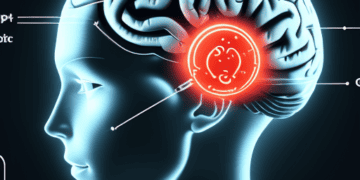On Wednesday, March 20, Neuralink, the brain technology startup founded by Elon Musk, showcased a significant advancement in brain-computer interface technology through a live demonstration. The event featured Noland Arbaugh, a quadriplegic man, who demonstrated his ability to play video games and online chess by merely using his thoughts to control a computer. This demonstration was streamed live on Musk’s social platform, X.
Neuralink’s brain implant, designed to allow patients to use their thoughts to interact with computers, represents a pioneering effort to assist individuals with severe physical limitations, such as cervical spinal cord injuries or quadriplegia. Arbaugh, 29, who suffered a spinal cord injury from a diving accident eight years ago, expressed how the Neuralink implant has significantly impacted his life, enabling him to engage in activities like playing Civilization VI, a game he thought he could no longer enjoy. “It has already changed my life,” Arbaugh remarked, highlighting the ease of the surgery and the quick recovery process, with his release from the hospital occurring just a day after the procedure in January.
While Neuralink is at the forefront of developing brain-computer interface devices, it is not alone in the field. Other research institutions and hospitals, including those part of the BrainGate consortium, have demonstrated similar capabilities for cursor control using thought. However, Neuralink’s device is noted for containing more electrodes than those currently used, suggesting a broader range of future applications and the potential for more sophisticated interactions without the need for wired connections to external devices.
Musk has hinted at the future possibilities of Neuralink’s technology, including the restoration of vision, which he teased in a post on X following the demonstration. The device, referred to as “Telepathy” for paralyzed patients, is anticipated to explore applications beyond motor function, with “Blindsight” being named as the next product focus.
Experts in the field acknowledge the significance of this development for individuals like Arbaugh. Kip Allan Ludwig, co-director of the Wisconsin Institute for Translational Neuroengineering, commended the achievement of enabling computer interaction through the implant. While noting that the breakthrough aligns with previous demonstrations in the field, Ludwig emphasized its importance as a starting point for further advancements.
Arbaugh’s journey, which saw him raising $10,000 through a GoFundMe campaign in 2017 for an accessible van following his accident at a children’s camp in June 2016, underscores the transformative potential of Neuralink’s technology for individuals facing significant physical challenges.
Stay informed with supply chain news on The Supply Chain Report. Learn more about international trade at ADAMftd.com.
#NeuralinkNews #BrainImplantNews #TechInnovation #MedicalBreakthroughNews #ElonMusk















